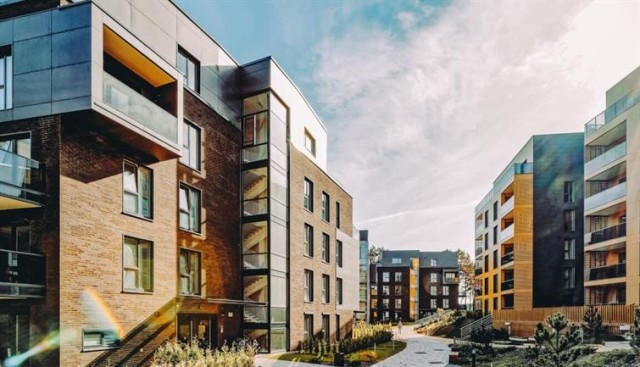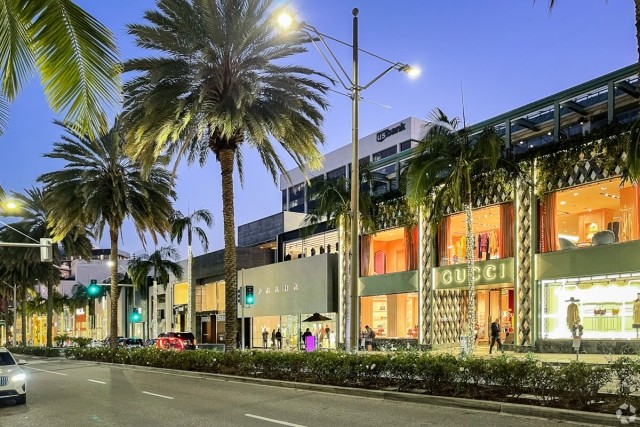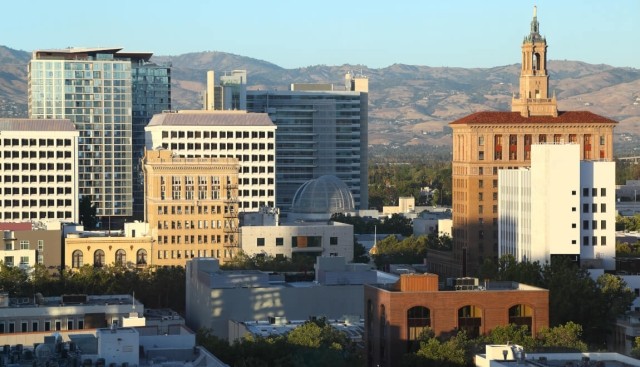Everyone handles their commute differently. Perhaps you consider it your “me” time, where you can belt out “Bohemian Rhapsody” or get caught up on your favorite podcasts as you fly down the highway. Or perhaps it is the least favorite part of your day where endless gridlock keeps you encapsulated in a metal box when all you want to do is get home.
No matter how you feel about commuting, it’s a big part of our lives. According to the US Census Bureau, the average person spends nine days a year commuting, and 85 percent of those commuters get to work by car. Five percent take public transportation, 2.8 percent walk, and less than one percent bicycle. But here’s an interesting fact: 85 percent of the happiest commuters say they walk or bicycle to work.
Since your commute can impact your overall health and happiness, let’s dive (drive?) into how to find an apartment with a great commute.
How's Your Commute?
The average commute time to work, according to the US Census Bureau, is about 30 minutes. Commute times are steadily increasing year over year, up by a full 20 minutes a week in the past 10 years. If 30 minutes sounds like a dreamy, short commute to you, then perhaps your commute is longer than you’d like.
No matter how long your commute might be, it probably doesn’t come close to the winner of America’s Longest Commute Award. That honor went to an electrical engineer in Mariposa, CA in 2006, who drove 372 miles roundtrip for work every day – that’s almost four hours each way!
A long commute isn’t just aggravating – it can be bad for your health. According to the US National Library of Medicine, health impacts associated with a long commute include increased blood pressure and weight gain. Studies also suggest a correlation between long commutes and higher rates of worker absenteeism and higher employee dissatisfaction. One study by Mercer found that people with long commutes get less sleep and are more stressed.
In a perfect world, no one would have to commute. Some studies suggest that 56 percent of the current workforce could work remotely. But while the majority of workers could give up their daily commute if their company allowed it, only about seven percent of people in the US currently telecommute, according to the World Economic Forum.
Recent events have accelerated the number of people telecommuting and some companies currently allowing remote work may continue to do so even after being able to fully reopen. Still, that’s only about 25 percent of the workforce. With just a small number of people not having to deal with a daily commute, the drive to and from work is still a reality for most of us, especially if you're facing an RTO mandate.
Many analysts think telecommuting will increase steadily over time, especially with developments in AR and virtual conferencing systems. But until then, we will continue driving to work every day, so let’s make the most of it. One important factor to consider is the average commute time for your city. To compare, let’s look at some cities with the longest and shortest commutes.
Cities With the Longest Commute Times
As you might expect, larger cities tend to have longer commute times on average. But which cities have the longest commutes? According to the Census Bureau, the following cities have the longest one-way commute times:
- East Stroudsburg, PA: 40 minutes
- New York, NY: 35.9 minutes
- Washington, DC: 34.4 minutes
- San Francisco, CA: 32.1 minutes
- San Bernardino, CA: 31.8 minutes
- Chicago, IL: 31.3 minutes
- Stockton, CA: 31.2 minutes
- Atlanta, GA: 31 minutes
- Hammond, LA: 31 minutes
- Vallejo, CA: 30.8 minutes
Cities With the Shortest Commute Times
Conversely, less-populated cities have commutes well below the national average of 26 minutes. Here are some of the cities with the shortest commutes:
- Fargo, ND: 16.9 minutes
- Manhattan, KS: 16.7 minutes
- Dubuque, IA: 16.5 minutes
- Wichita Falls, TX: 16.5 minutes
- Waterloo, IA: 16.4 minutes
- Cheyenne, WY: 16.1 minutes
- Lewiston, ID: 15.7 minutes
- Great Falls, MT: 15.6 minutes
- Grand Forks, ND: 15.5 minutes
- Walla Walla, WA: 15.4 minutes
How to Calculate Commute Times
A variety of factors go into your commute, and since those factors can change daily, your commute is far from predictable. There are traffic jams, accidents, road construction, school zones, and the weather to consider. (Yes, the weather. If you’ve ever commuted in Atlanta in the rain, you know what I mean.)
Unless you are walking or bicycling to work, the distance from your apartment to your job isn’t as crucial as other factors. For example, without traffic, it might take you 30 minutes to drive 15 miles. But on a traffic-jammed highway, that 30 minutes quickly becomes an hour or more. You might consider taking a slightly longer route along back roads to avoid the highway and make the trip to work a little more pleasant – and maybe even save some time.
To get a better understanding of the commute you might have when looking at apartments, visit during rush hour. Drive from the apartment complex to your work. If possible, do this in the morning as well as in the afternoon. This will give you an idea of the traffic pattern, tricky intersections, possible bottlenecks, and potential hold-ups like school zones, extra-long traffic lights, and bus stops.
In addition to the actual distance from the apartment community to work, you’ll want to look for access points to major highways or a train station and the roads you’ll have to take to reach those access points. Use Google Map’s street view to get an idea of how congested those roads are (remember to factor in important things like where you can get coffee in the morning, your child’s daycare location, and other morning stops you might have to make).
Be sure to take note of any major road projects along your route, since these can cause major traffic back-ups and take several months (in some cases, years) to complete.
How to Plan Your Commute
To help you find the best possible commute, Apartments.com has a “Plan Your Commute” feature that makes it easy to find apartments within your desired commute time. Let’s walk through how to use this feature and you’ll be singing on your way to work in no time.
First, type your desired location into the search bar. On mobile, find the blue “Search Tools” on the top right of your screen, just below the search bar. Click that and select “Search by Commute.” On desktop, you’ll find this on the map – just click the car icon located on the right side of the map.
Next, type in your work address and choose how you would like to get to work (drive, public transit, walking, or bike). Set the commute time (in minutes) and choose whether that time is during rush hour or with no traffic.
Click “Done.” If you are on a mobile device, make sure to click “Map View.” You should now see a highlighted area outlined in green. Look for apartments within the highlighted area, since these should fall within your desired commute time.
To narrow down your search a little more, use the pencil tool to draw a specific area (such as around a transit station).
If you want to see the roads and the area around the apartment community, click on the satellite view. It’s under “Search Tools” on mobile. On desktop, it’s the globe icon above the car icon.
Now that you have your search parameters, it’s time to narrow down your choices. Be sure to factor in things like the cost and your budget, the amenities available, and floor plans with the right amount of space.
To find the perfect apartment with the perfect commute, make a list of your priorities and consider the cost associated with your chosen commute. For example, you might pay more to live in the city close to work (and your apartment will likely be smaller), but if you can walk to work, you’ll save money on car expenses (gas, loan payments if you forgo the car completely, and maintenance costs). If you choose a place a little farther from work, you might find a larger rental with more amenities for far less than you could in the city, but you’ll be giving up some time each day for your commute.
If you do choose an apartment with a longer commute, consider using mass transit or try to find some neighbors to carpool with. This will save wear and tear on your car and give you some days where you can read or work rather than drive.
No matter how long (or short) your commute is, try to make the most of it. Instead of thinking about the awful traffic or the fact that you just want to get home to your cozy sweats and your favorite reality TV show, try listening to books on tape, learning a new language, laughing at comedy podcasts, or singing along with your favorite band. Happy commuting!






